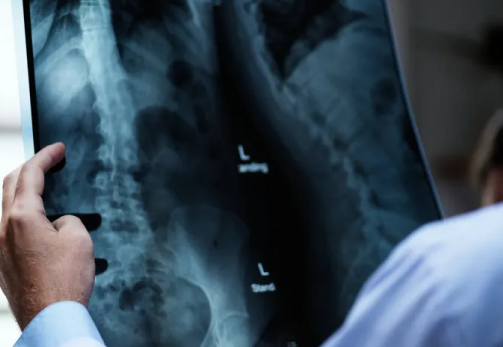BLOG
Radiologists and Radiographers are both healthcare professionals who play important roles in medical systems and form an integral part of them. Each one has a distinct expertise that helps to forge comprehensive patient care. Many people mistakenly assume radiology and radiography to be the same professions, but they are not. Let us understand the difference between a Radiographer and a Radiology.
Radiographer Vs Radiologist
Although numerous skills are shared between a Radiologist and a Radiographer, their education, training, and job roles are distinct. So, we can say that the difference between a Radiographer Vs Radiologist lies in their areas of responsibility and previous training.
| S.No. | Radiologist | Radiographer |
| 1. | Radiologists are allied health specialists who interpret our X-rays, CT scans, MRI scans, ultrasound, nuclear medicine scans and other medical imaging tests and then treat us accordingly. | Radiographers are medical professionals who take X-rays, CT scans, MRI scans, ultrasounds, nuclear medicine scans. and other medical imaging tests to assist doctors in diagnosing diseases and injuries. |
| 2. | Radiologists must have state-issued licenses to practice medicine. | Radiographers are certified or licensed, depending on state requirements.
Duties
|
| 3. | Radiologists are Fundamentally Medical Doctors. | Radiographers are fundamentally healthcare professionals who perform diagnostic studies. |
| 4. | It requires at least five years of study to be a radiologist. | Radiographer training programmes take an average of three to four years to be a radiographer. |
| 5. | Radiologists perform important duties during exams like fluoroscopy and biopsies. | Radiographers follow established protocols and guidelines to get HD images for appropriate diagnosis. |
Radiography is the procedure of creating images, while radiology uses those images to diagnose and treat patients suffering from diseases. Radiologists and radiographers are both professionals on the care team who play an important role in patient care.
Radiology Courses to Be Pursued After the 12th
Numerous radiology courses can be pursued after higher secondary education in order to become a radiologist. Some of the most prominent courses are:
- Sc. Radiology
- Sc. Medical Laboratory Technology
- Sc. Medical (Radio) Imaging Technology
- Diploma in Medical Lab Technology
- Diploma in Radiology
- Certificate in Radiology
And more!
Salary of Radiologists and Radiographers
According to Ambition Box, the average salary for a Radiologist in India is 25.3 Lakhs per year (₹2.1L per month), while the Average salary for a Radiographer in India is 2.6 Lakhs per year (₹22.1k per month).
Evolve Into a World-class Healthcare Professional with Apollo Education UK
Apollo Education UK specialises in providing trained healthcare professionals to NHS trusts and private clients across the United Kingdom. In 2018, Apollo Education entered the UK by acquiring the Crewe campus of Manchester Metropolitan University in partnership with the University of Buckingham.
The team of Apollo Education UK experts has a deep understanding of healthcare organisations’ specific requirements and facilitates connections with healthcare professionals globally. This includes professionals in various healthcare domains, such as doctors, nurses, radiologists, and other allied healthcare fields.
The collaboration between AEUK and the University of Buckingham established the Apollo Buckingham Health Science Campus (ABHSC). The Crewe campus focuses on offering medicine courses and strategically addressing areas with a high demand for a skilled healthcare workforce. This initiative aims to contribute to meeting the healthcare needs in the UK by providing quality education and training to future healthcare professionals.
Apollo Education UK Radiographer offers a programme for Radiographers interested in working in the UK. The programme accepts the vital costs, time, and resources involved in relocating a radiographer and covers these aspects as part of the initiative. Upon acceptance of a conditional offer, the program covers various costs for the radiographer, including a 2-week residential and educational package, a one-way economy flight to the UK (excluding family members), Certificate of Sponsorship and visa costs (supplied via a prepaid card), HCPC registration refund, and initial accommodation costs for up to 10 weeks following a 2-week residential period, as agreed with the employing trust. This comprehensive support is designed to facilitate the relocation of radiographers to the UK and ease the transition into their new roles.
Conclusion
Radiologists and Radiographers are very important aspects of the health sector. Both have many common job roles, but they are different professions. Radiographers perform scan X-rays, and Radiologists analyse those X-rays and treat patients accordingly. Apollo Education UK hires radiographers, trains them, and provides placement in the UK. If you want to make a career in radiology or radiography and work in the UK, join Apollo Education UK.

Recent Post
- Radiologist vs Radiographer: Understanding the Key Differences
- Unravel the Biological Mechanisms of Diseases with a Biomedical Science Course
- Know the Difference Between MBBS & MBChB and Make an Informed Decision
- A Guide to Medical Foundation Programme UK – The Medical Realm at its Best
- Dig Deep and Attain Excellence in Radiology with Radiologist Course Details


